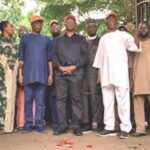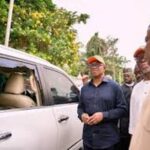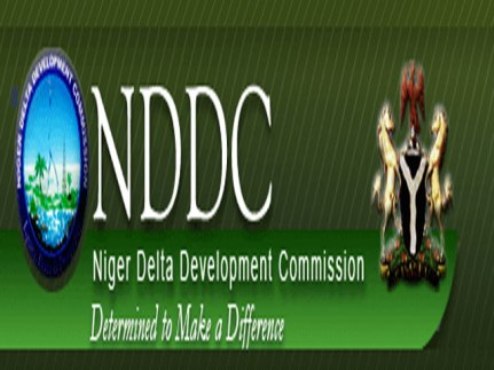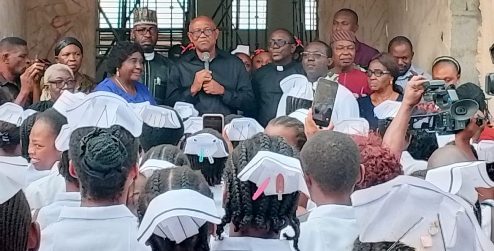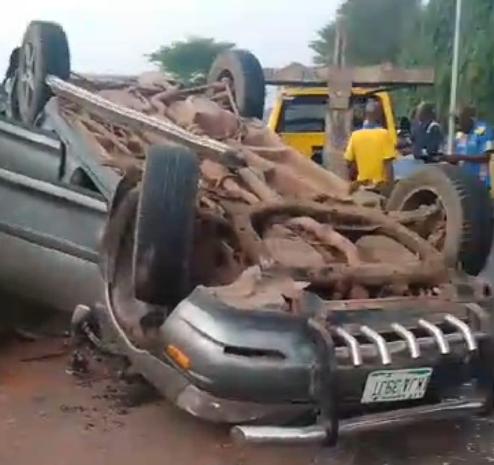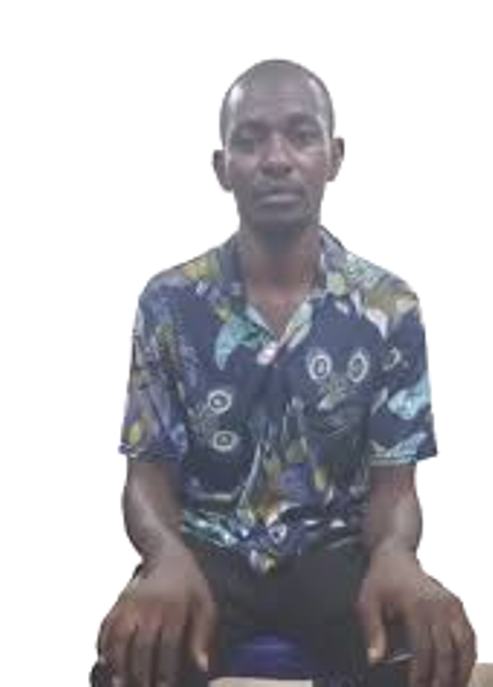By Benjamin Mragbozo
LAGOS SEPTEMBER 2ND (NEWSRNAGERS)-This year marks 25 years since the establishment of the Niger Delta Development Commission (NDDC), a body created in 2000 with the noble intention of addressing the age-old marginalization and underdevelopment of the oil-rich Niger Delta. However, for the people of Delta State — one of the region’s major oil producers and economic backbones of the country — the anniversary brings not celebration, but disappointment and deep reflection.
It is distressing that after a quarter of a century of its existence, the NDDC has no legacy projects to show in Delta State — no single monumental structure, road network, educational institution, or healthcare facility that can stand as a testament to the Commission’s presence. What we have instead are uncompleted and abandoned projects that litter the state like forgotten relics. These failed promises are not only physical eyesores but symbols of a deeper and persistent injustice.
Delta State produces a significant portion of Nigeria’s crude oil and natural gas — the very resources on which the NDDC’s budget and existence are predicated. It is therefore, profoundly unjust that our people, who bear the burden of oil exploration and its environmental consequences, continue to suffer neglect in terms of infrastructural development and resource allocation.
The founding purpose of the NDDC was to bridge the gap between oil production and development in the Niger Delta. Its mandate includes the provision of critical infrastructure, healthcare, education, job creation, youth empowerment, and environmental remediation. It was created to correct historical injustices and to ensure that oil-producing communities benefit from the wealth generated beneath their soil.
However, 25 years later, the reality in Delta State tells a different story — one of exclusion, disparity, and broken trust.
Across many parts of Delta, roads are impassable, healthcare facilities are dilapidated, schools are under-resourced, and job opportunities for our youth are scarce. More galling is that states that produce far less oil than Delta are dotted with NDDC legacy projects — completed and commissioned — while Delta is treated like an afterthought. This is not only unacceptable, it is a fundamental betrayal of the Commission’s very foundation.
The injustice goes beyond roads and buildings. It reflects in staffing, award of contracts, scholarships, and the general treatment of our people within the system. Merit and fairness have been sacrificed on the altar of political favoritism, nepotism, and regional bias. This institutional marginalization cannot be ignored.
As it is rightly said, “When equals are treated unequally, it is injustice; but when unequals are treated equally, it is also injustice.” Delta State, by virtue of its significant contribution to national revenue through oil and gas, should logically command a proportionate share of development projects and attention. Instead, we are handed crumbs, while others feast.
Perhaps what stings most is that our senators and the House of Representatives members that should collaborate to attract legacy projects such as dredging the Warri port, Burutu port,Sapele port, Koko port, Abor port, Okwagbe port, DSC Port and it’s tributaries which cuts across several local government areas, instead of picking individual contracts in place of the general interest of the state. One would expect that with federal legislators from our state in such a strategic position, the interests of Delta would be prioritized and defended.
It raises a crucial question: who speaks for Delta State? Who fights for our share of the collective promise? Who ensures that our voice is not lost in the corridors of Abuja where decisions about our lives are made? If the people entrusted to advocate for us choose silence or complacency, then the people must speak louder.
The time has come for all Deltans — traditional rulers, community leaders, youth groups, civil society, and the media — to demand accountability. We must insist that justice be done. The NDDC cannot continue to function as a political reward system or as a tool for selective development. It must return to its original mission: to serve and uplift the entire Niger Delta equitably.
Justice, in this context, does not mean extra privileges for Delta State. It means fair and proportional treatment based on our contribution and needs. It means completing the hundreds of abandoned projects in our communities. It means giving our youth equal access to scholarships and skill acquisition programmes. It means employing our people in the Commission and awarding contracts to our local contractors. It means inclusion.
As of 2023 to date, Delta State has been Nigeria’s highest producer of hydrocarbon resources — a status that should command proportionate developmental attention from the NDDC. That it does not is a glaring injustice that must be urgently corrected.
Let me be clear — this is not a cry for charity. It is a demand forl what is due, lawful, and just. The resources being used to run the NDDC come largely from the suffering of our land, the pollution of our rivers, and the sacrifice of our people. It is morally indefensible to exclude Delta from the benefits that flow from its own soil.
As the NDDC enters its next quarter-century, it must undergo a reawakening. It must reexamine its priorities and restructure its policies. It must learn to listen again to the cries of the people it was created to serve. Anything less is a continuation of the same marginalization that sparked its creation.
Delta State deserves better.Our people deserve better. The NDDC must rise to the occasion — not with words or slogans, but with action, with justice, and with equity.
For media advert placement, events coverage, media consultancy and further inquiries please WhatsApp 0802377303039 or email: labakevwe@yahoo.com




